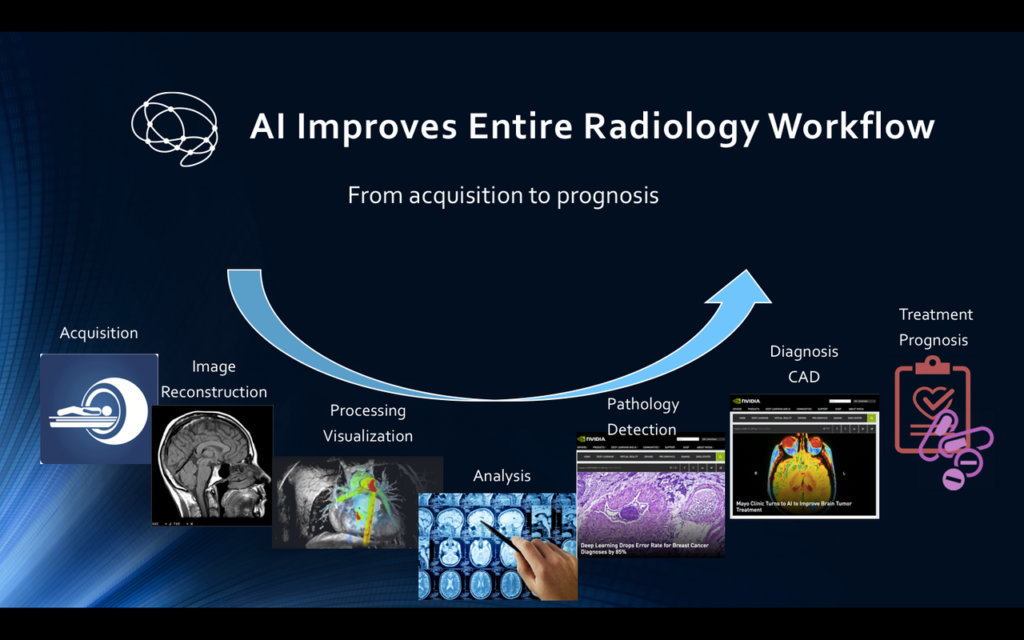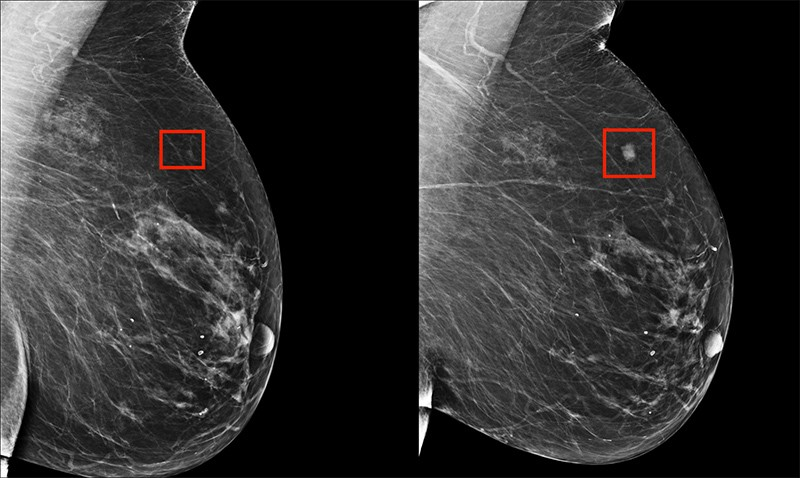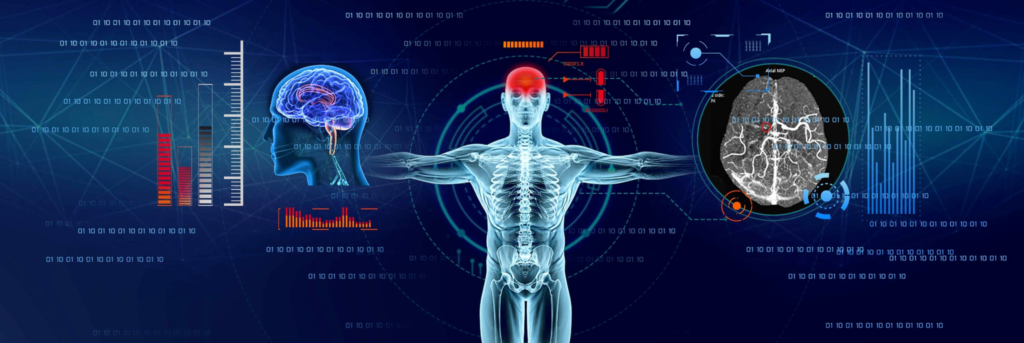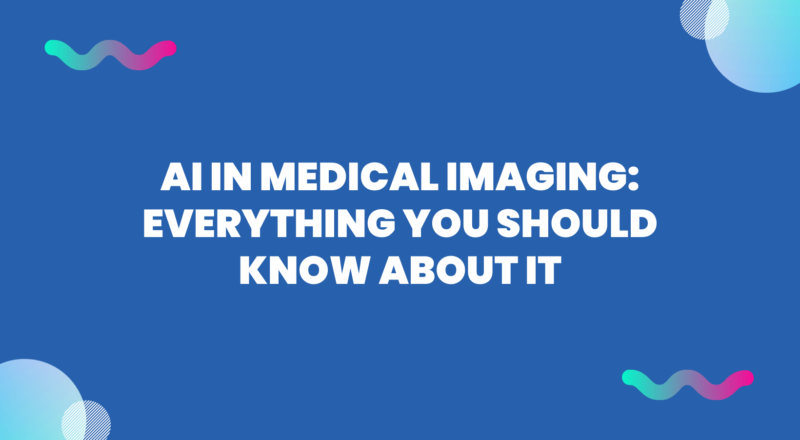The potential benefits of AI in healthcare are limitless.
Healthcare professionals and stakeholders are experiencing how AI is helping them open a new door to improving the quality of care. Industrial robotics can be used to automate the handling and processing of medical images, freeing up radiologists to focus on diagnosis and interpretation.
AI in medical imaging is one of the prominent examples of it.
Healthcare entities are implementing AI-based software solutions into their medical imaging department in order to help everyone under the same umbrella.
In this blog, we are going to discuss how AI is creating strong roots in the future of medical imaging.
The importance of AI in medical imaging
Let’s understand with real-world facts.
- 60 radiologists for 190 Million people (Nigeria)
- 4000 radiologists for 130 Million people (Mexico)
- 36 radiologists per Million (Japan)
- 14 African countries have no radiologists
Means, there is a shortage of radiologists on a global scale.
As a consequence, there is a high work burden in the radiology departments.
This miserable situation poorly impacts the patient outcomes, radiology professionals and overall costs.
But, AI holds a result-driven solution to address every concern of the radiology department without adding any complexity.
AI helps in reducing workflows and ensures operational efficiency in the ecosystem. This way, it improves the overall patient outcomes and satisfaction. AI and machine learning are rapidly transforming the field of medical imaging, enabling more accurate diagnoses, earlier detection of diseases, and personalized treatment plans.
In simple terms, AI is important for everyone, from patients and healthcare professionals to stakeholders or organizations.
The benefits of AI in medical imaging (A transformation in the true sense)
As we said earlier, AI contains an endless potential to improve medical imaging outcomes.
And here are some of the other benefits of AI in medical imaging.
#1. Elevates patient outcomes in a faster manner:
In many life-threatening scenarios, such as acute ischemic strokes, it is essential to perform and manage every task in a faster manner including CT scans and finding the best outcomes.
AI technology speeds up the decision-making process for radiologists along with predicting the outcomes based on real-world data.
#2. Advancing medical screening:
AI helps healthcare professionals in making quicker and more reliable decisions with ease.
In fact, it assists them in identifying early intervention and predicting the risk and outcomes.
#3. Enhancing precision medicine:
AI identifies the disease or type of cancer and gives the best possible way to diagnose the patient.
As a result, it enables healthcare professionals to provide the most reliable and accurate personalized care solutions hassle-free.
#5. Identifying the risk potential:
This is one of the most prominent benefits of AI in medical imaging.
With the large-scale medical imaging data, AI-enabled software helps medical experts in analyzing the risk potential for the nearby future.
#6. Adds a layer of accuracy:
We both are familiar with the expertise of radiologists in medical imaging analysis.
But, using AI in that, they can add an extra layer to the decision-making process which positively affects the patients’ care outcomes.
#7. Reduces the work burden:

The high and time-consuming workflows open a vast number of doors that can bring the organization in a downward direction.
Thus, it is important to reduce the clinical workflows in order to save time, money and improve care efficiency.
AI-enabled medical imaging software contains the ability to automate repetitive tasks for radiology professionals so that they can easily perform other key responsibilities in their ecosystem.
Explore the applications of AI in medical imaging
Medical imaging departments hold a massive amount of image data that includes MRI, CT and X-ray scans.
Using AI-enabled solutions, clinicians and radiologists can speed up their clinical approaches without adding any tedious, complex and costly barriers.
So, here are some of the applications of AI in medical imaging.
#1. Image analysis in common cancer:
AI has proved its worth in cancer imaging.
It improves accuracy and speeds up the decision-making process for radiologists and clinicians.
In fact, it helps in analyzing and predicting the early intervention along with creating a most sufficient diagnostic process based on the large-scale medical images and reports.
Explore the image of AI in breast cancer imaging analysis.

#2. Improving the care outcomes for neurological disorders:
There is no ideal cure for many neurological disorders, even healthcare is achieving new heights day by day.
But using AI, the healthcare ecosystem can improve the diagnostic accuracy so that patients don’t need to suffer more for their neurological disorders.

AI-enabled medical imaging analysis helps healthcare professionals in identifying the patterns of the disorders along with the behaviour patterns of the patients.
This way, they can improve their care approach with real-world and accurate data.
#3. Identifying the fractures and other injuries, faster and more accurate
AI makes it easy to identify fractures, small cracks, tissue injuries and the list goes on and on and on…
The most significant part about AI is that it lowers human errors and improves patients’ safety.
For instance, it’s not easy for healthcare professionals to locate every internal injury from the X-ray. And it sometimes results in a life-threatening situation for the patients.
But AI-based software easily helps medical professionals in identifying every small injury in a faster, accurate and efficient manner.
#4. Indicating cardiovascular abnormalities with ease:
Using AI, healthcare organizations can automate the identification of cardiovascular abnormalities such as,
- Chest pain
- Chest tightness
- Chest pressure
- Chest discomfort
- Shortness of breath
- Pain, numbness, and weakness in your legs or arms
As a result, healthcare experts can easily prevent the abnormalities without wasting time on identification.
In fact, it also helps in making a faster and more accurate decision-making process for the same.
AI means greater accuracy and efficiency!
AI is playing a significant role in the diagnosis, monitoring and prevention of healthcare concerns.
The future of AI in medical imaging is promising.
Healthcare organizations are now implementing AI-based medical imaging solutions to improve accuracy, efficiency and reduce costs and time.
However, it’s essential for healthcare entities to focus on healthcare software development in order to get the best results from the tech solutions. This is just the beginning of AI in medical imaging. The upcoming years are going to be revolutionary for radiology professionals to unlock new possibilities in every stage of the diagnosis process.
